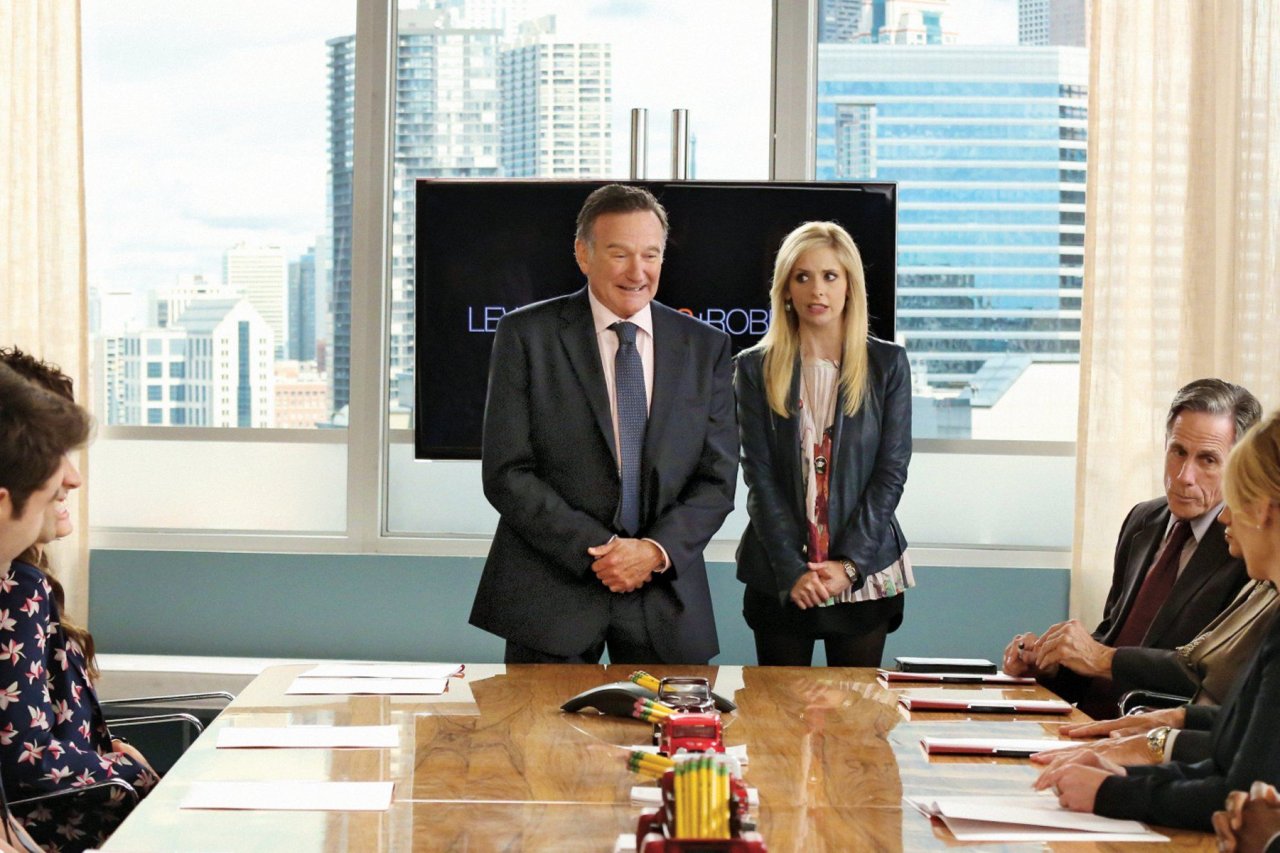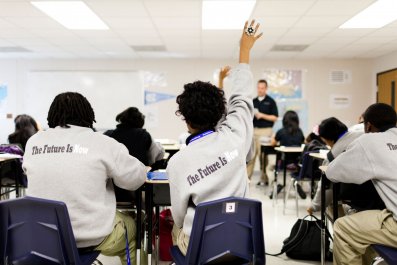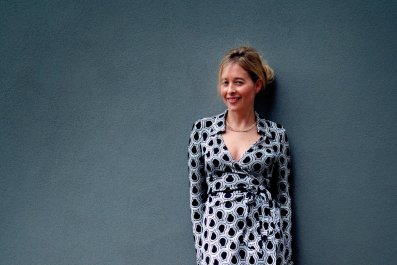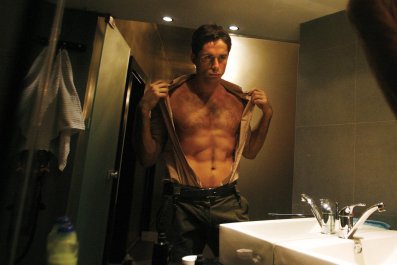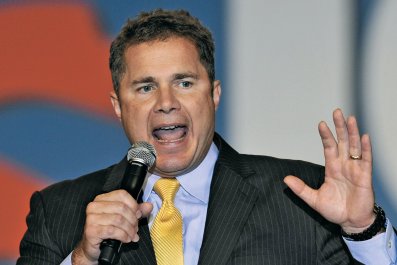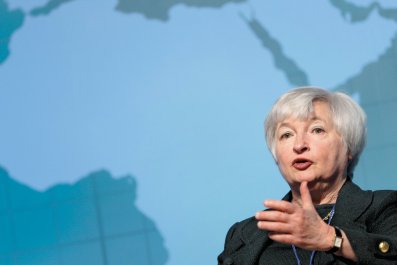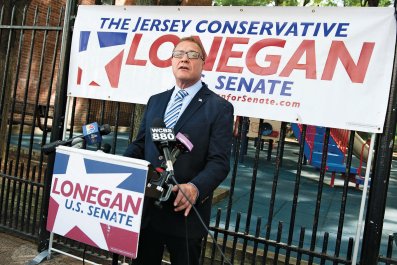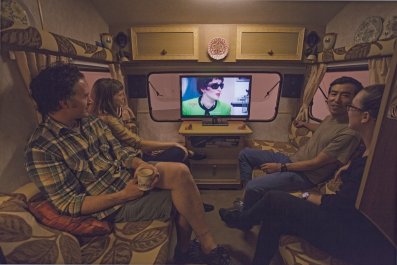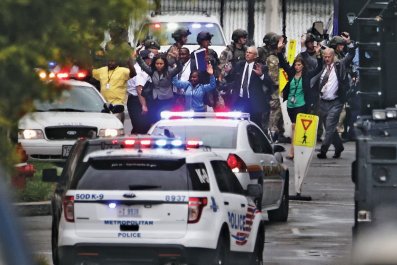"I gotta tell ya, this Simon Roberts is way closer to me than Don fucking Draper."
George Lois, ad man extraordinaire, has just watched the first episode of The Crazy Ones, a new comedy series from David E. Kelley starring Robin Williams as Simon Roberts, an eccentric advertising genius who rebrands failing businesses, charms his way through meetings, and persuades Kelly Clarkson to sing for McDonald's. Lois—the man behind the "I Want My MTV" campaign, the creation of VH1, countless iconic ads, and those '60s Esquire covers everyone's still trying to top—has in recent years been called the original Don Draper. He's not a fan of this comparison. Now 82, Lois may recognize a bit of himself in The Crazy Ones, which premieres September 26 on CBS, but he has also spotted some serious flaws. To wit: ad campaigns must have wit.
Here, the godfather of the Creative Revolution—who has never bitten his tongue in his life—explains why Mad Men and its ilk don't get it right, and, in a nod to his most recent book, offers some damn good advice for producers who want to portray his world.
This interview has been condensed and edited.
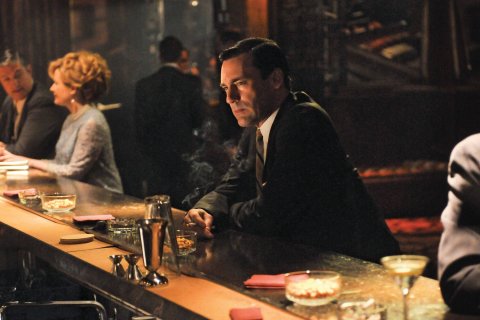
NEWSWEEK: Thanks for taking the time to watch the episode. Tell me why The Crazy Ones is more realistic than Mad Men.
Lois: Instead of an ad agency of womanizing, racist, anti-Semitic, Republican sons of bitches, they got a guy like Robin Williams, who's a sweet crazy person. His daughter [played by Sarah Michelle Gellar] and the account executive [played by James Wolk] are a nice bunch of people instead of sickos who have no talent, like on Mad Men. The premise of this show is that he's got the biggest clients in the world. He's a little nuts, but he's so brilliant. The only problem is the first episode does not express any creative brilliance. The idea for McDonald's—that food brings people and family together—is pathetically uncreative. When I'd come up with a big idea, I'd develop it, stylize it, do it visually and with storyboards, and show it every which way. The fantasy of him coming up with an idea out of his ass—I never did that in my life.
Do you think this show is trying to emulate you?
Months ago I got a couple of phone calls from people I know who said, "They're doing a show on you and looking at all your books." The problem was they didn't really look at the books closely. My shenanigans were and always will be in selling to clients. My most famous story is when I threatened to commit suicide. It's so well known in the business that people don't believe it anymore.
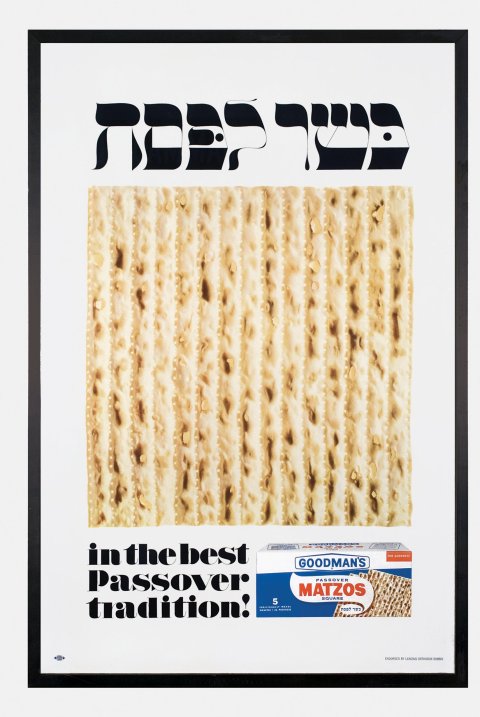
It was 1959 and I was working at Doyle Dane Bernbach. I did a subway poster for Goodman's Matzos with Hebrew type and a beautiful rendering of a giant matzo. I had to give it to the account guy and he takes it to the client and later says, "They didn't like it." Next day I show my boss Bill Bernbach the poster and he loves it. I said, "Bill, I wanna sell it." So I go into the meeting with this 94-year-old guy from Goodman's who doesn't like nothin' and 12 of his sons and daughters and grandchildren because it's a family business. I start selling my ass off. He says [affects accent], "I dun like it." This went on for 15 minutes, and I didn't know what to do. I look behind me and there's a window. I walk to it and he says, "Going someplace?" I grab the ledge of the window and I literally hang one foot out and yell, "You make the matzos, I'll make the ads!" I thought he had a heart attack. He slumped down in his chair and says, "All right, all right, we'll run it." I thank him, and as I'm leaving he yells out, "Young man! If you ever quit advertising, I'll give you a job as a matzo salesman!"
Before Mad Men premiered, everyone in the business said, "They're doing a show on George Lois." And I said, "I don't think so." But I got a phone call from the associate producer and he says, "Mr. Lois, we're finding people who are important in the '60s in advertising and everybody who we talk to says we have to talk to you." And I say, "Wait a minute, you're doing a show on the '60s and advertising, and you've never heard of me?" He says, "No, we've heard of you." I say, "You're full of shit! You just told me you've never heard of me!" So I tell him, "If you want to really know what happened in advertising in the '60s, it's something called the Creative Revolution. I started an ad agency, Papert Koenig Lois, and it was a gigantic success and exploded into this movement called the Creative Revolution. Two agencies came out of my agency, and then there were seven or eight agencies and that changed advertising forever. So if you want to know what happened in the fucking '60s, get my book George, Be Careful." And then I hung up. I called it that because everyone always told me "George, be careful." But I'm not careful. You can be cautious or you can be creative, but you can't be a cautious creative.
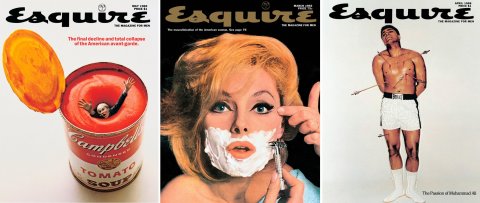
This guy calls me up a week later and he says, "We've bought six copies of your book and everyone here is going crazy. We could have done a show just based on your book!" Then out comes Mad Men and it's a piece of shit with these no-talent bums in this stupid, anti-Semitic, racist agency, and all of a sudden everybody in the world is calling me "the original Mad Man," and they mean it like, "Hey, wow, you're terrific!" But I'm not Don Draper! Don Draper is a sick fuck. Worse than anything, he's untalented. The Crazy Ones with Robin Williams is much closer to me. He could have played me in a movie. Stanley Kramer spent three years almost doing a movie based on the book George, Be Careful in 1972. Robin Williams would have been pretty good playing me, except I was much better looking.
Is the advertising industry inherently crazy?
When you look at my career and what happens at a creative agency, the craziness isn't coming up with the idea. It's concentrating and putting down an idea and every angle and every aspect of it. I don't say to a client, "I'm going to do this." I show them, and I make sure I show them something that will shock them, that will knock them on their ass. In this show, he tells McDonald's that they're going to bring back the commercial they did years ago. It's so stupid.
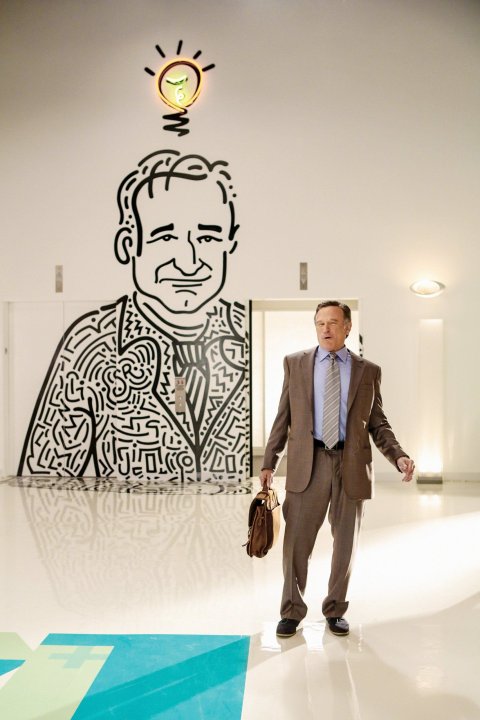
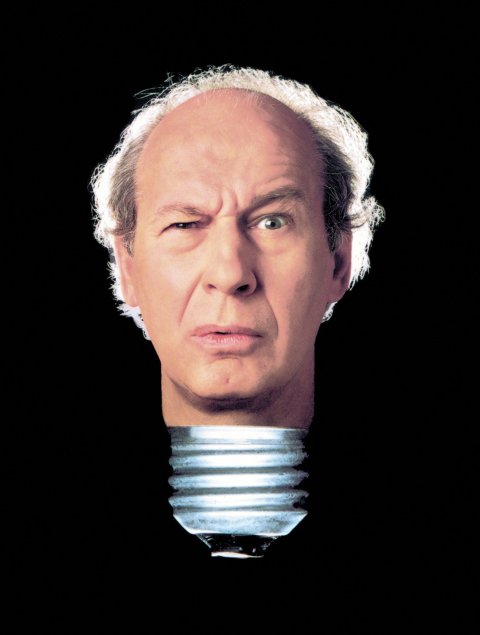
They thought it worked in the '70s, so why not try it again?
That's not brilliant. Cutty Sark Whisky came to us in the early '70s. They'd advertised for 100 years with a full-page ad of a painting of a sailing ship, the Cutty Sark. To me it always looked like a slave ship. It was a ridiculous ad, but it ran for years. It was a $10 million account, and they came to six or seven agencies, including mine, and said, "Do we get rid of the ship?" I looked at them and said, "We're gonna keep the ship. We're not going to keep that painting, but the ad's going to be 'Cutty Sark: Don't give up the ship.' " You gotta knock them on their ass.
Do you believe the only true portrayal of advertising could be in a documentary format?
Stanley Kramer had a movie treatment written that was based on actual things I did with actual clients. He had 18 scenes marked from George, Be Careful that he was going to use in the movie. One scene was when I got a call from the Quaker Oats people in Chicago who wanted to come see us in New York. They said, "You guys are terrific," and we thought we would get the account. The next day they called and said, "We really want you, but Quaker Oats is the kind of company that calls meetings in the morning and you're all the way in New York and blah blah blah bullshit." It was nine o'clock in Chicago and 10 o'clock in New York and I go to the guys and say, "Grab your jackets." We go to the airport and catch a plane, race to their office, and get to the receptionist, who says they're still out to lunch. The guys and I sat sprawled in their waiting room and in walked these guys. They took one look at us, looked at each other, and said, "You've got the account."
That's the shenanigans that I do. Things that make sense. Even threatening to commit suicide made sense in the moment!
How would you explain advertising to someone not in the business?
David Susskind, the big producer, was doing an episode of his talk show, and one of his guests didn't show up. So I go instead and there are two real marketing stiffs there. David turns to one and says, "Can you please explain to us what advertising is?" This guy spends 10 minutes talking about marketing and this and that and says, "Finally, at that point, you produce advertising—and you ask for the sale."
And your head explodes.
The other guy says, "Perfect explanation." The camera cuts to me and David asks, "George, what do you think advertising is?" And I said, "David, I don't think these guys and me are in the same business. I think advertising is poison gas." I said, "When you see it, your eyes should water. It should knock your head back about a foot, and you should almost pass out." The next day, the Associated Press story was something like "New York Adman Calls Advertising 'Poison Gas.'" I don't know if you've ever seen these ConEd metal plates that said "Poison Gas," but 30 or 40 people from around the country sent them to me. When you go on TV and talk about advertising as poison gas, that's crazy, but that's great crazy. They have to come up with something on The Crazy Ones that's crazy brilliant.
Is there anything that knocks you out now? What do you think of Apple's new "Designed in California" campaign?
I'm very disappointed in that. They're trying to say it's made in America. It's complete bullshit. It was conceived and designed in America, but there are people in other countries making them. When Steve Jobs was alive, President Obama talked to Jobs and said, "You've gotta do something, you've gotta start making these parts in America." Jobs said, "Nah, we can't afford that." Fuck you, Jobs, you prick! Yeah, you were great, but you're a prick. I'm disappointed because my friend Lee Clow of TBWA Worldwide worked on the campaign. But to me the whole campaign's a lie. What Apple did for technology is brilliant, but they didn't do nothin' for our economy.
Maybe one day they'll make a show that you think is spot-on.
You know, after I did a story for Newsweek's Mad Men issue last year, I was dragged to the party for it, and I met the producer of Mad Men, I can't remember his name ...
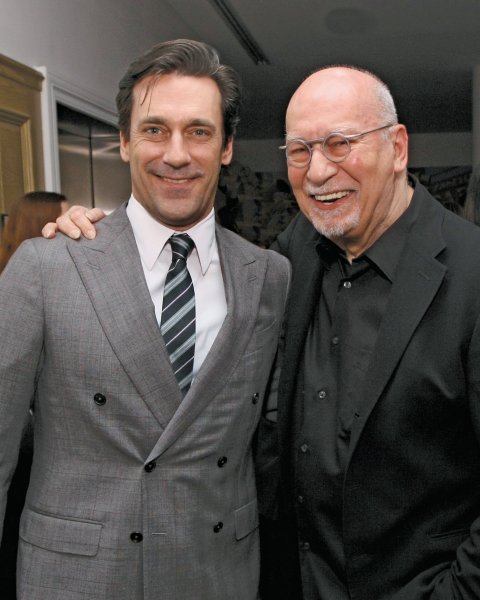
Matt Weiner?
Yeah. I'm standing next to him and I lean over and say, "Mr. Weiner, I'm Mr. Lois." He literally backed up like two feet, like he thought I was going to punch him because of the things I've said about the show. But then he saw that I was being friendly and said, "You know, we based our show on you." And I said, "You're shitting me. You think Don Draper is me?" And we go on. He went from being scared to praising me. When he leaves, my son Luke, who was there, says, "He just blew you." But then the actor Jon Hamm—he was a beautiful kid—started to talk to me and knew a ton of my work. "When I started doing the role," he said, "I got four of your books," and he was serious. And then he said, "You know, I'd like to apologize for the kind of character I play, because I know you're not Don Draper."
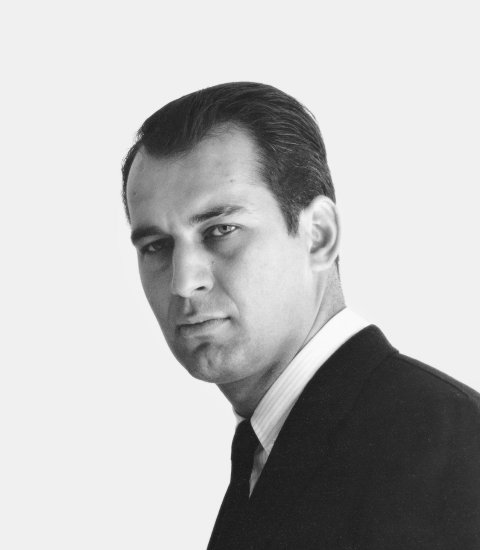
That must make you feel a little bit better about the show.
I wound up really liking him. And I got a picture of us together. I haven't shown that to anyone.
You do have that photo of you looking very Draper-like in your book.
I was better looking than Jon Hamm in those days. Women look at the photo and say, "You were!" But the operative word is "were." That's the other thing about the show: he's there shtupping everything in sight, and I'm a one-woman man my entire life. I've been married to my wife for 62 years. I wasn't a bad-looking guy when I was younger. I had movie stars and models all over my ass. Jane Russell, Kim Novak, Betty Grable, and Joan Crawford, even though she was older than me. I'm talking about the most sensational women in the world. I wish I could say it was easy, it wasn't. But I'm telling you I ran as fast as I could, because I've got one woman who is all I want in life.



